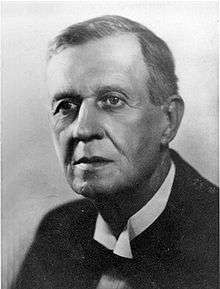Josip Hatze

Joseph Hatze (1879–1959) was one of the first and most prominent Croatian composers [1] in the Mediterranean style in the first half of last century.
Hatze was born in Split (then Austro-Hungarian Empire, now Croatia) to a family of respected craftsmen from Split. During school he was absorbed with musical events, especially with sacred music and folk songs. Accidentally discovering his exceptional musicality, and with family support, he attended all the performances in the newly opened Municipal Theater in Split. Strong experience of orchestral and choir performances in the Split theater encouraged the 16-year-old Hatze to sing at Chapel Mass. During that time he wrote "Misa a Kapela" (in Croatian text), which was performed with great success. Later other Dalmatian school choirs started performing his musical work.
He completed his studies in composition in 1902 at the Rossini Conservatory in Pesaro with the great operatic composer Pietro Mascagni. Returning home to Split, he worked as a choir teacher at the Central Technical School in Split and was the choirmaster at the choral society Zvonimir.
During World War I, he was on the front, away from home, and did not know that his beloved wife Gilda had died of the Spanish flu. Gilda was from the patrician Marulić family (related to Marko Marulić). Afterwards he was the choirmaster of the choral society Guslar.
During World War II Hatze became a refugee in El Shatt in Egypt. There he organized a camp choir.
Hatze wrote up to 60 songs. He wrote cantata "Night at Una" (verses by Hugo Badalić), "Exodus" (1912) and "Golemi Pan" (1917). The work "Golemi Pan" (Huge Pan) was written to the poetry of Vladimir Nazor. Hatze had a great sense of drama. This skill was especially well applied in both the orchestral work of the operas of The Return (1910) and Adel and Mara (1932). The Return is the story of a Croatian peasant who had to go to a foreign land and then return to his family home.
Joseph Hatze died in Split at the age of 80. In Split and in honor of this great Croatian composer, a secondary music school is named "Josip Hatze".
In Croatia on the 125th Anniversary of the birth of Josip Hatze, a stamp was released in his honour.[2]
See also
References
- ↑ Don Michael Randel (2003). The Harvard Dictionary of Music. Harvard University Press. p. 227.
- ↑ "Croatian music, 125th Anniversary of the Birth of Josip Hatze". Croatian Post. Retrieved October 21, 2009.
External links
- Ljuven Sanak by Josip Hatze on YouTube performed in HNK Split on a concert dedicated to Hatze's birth. The piece was done by Split's music schools choir and string orchestra.